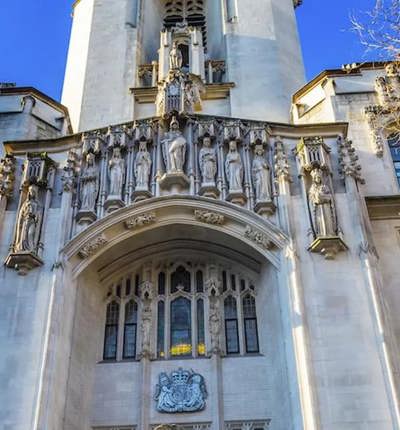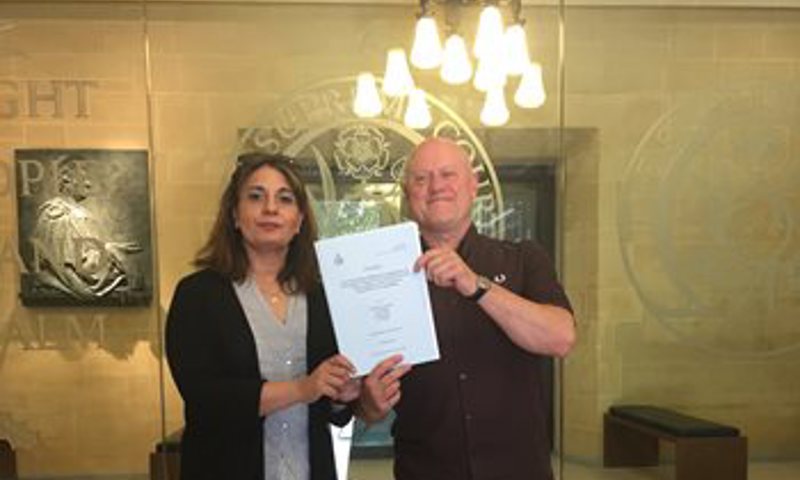
Supreme Court Backs Asbestos Support Group in Disclosure Case
The Supreme Court ruled that the Asbestos Victims Support Groups Forum UK can access court documents from the case against Cape Intermediate Holdings.
Posted on 29 July 2019
This case is about how much of the written material placed before the court in a civil action should be accessible to people who are not parties to the proceedings and how it should be made accessible to them. According to the lawyer representing the Forum, Harminder Bains from law firm Leigh Day, it is about the extent and operation of the principle of “open justice”.
The ruling will have wide-ranging implications for the future disclosure of documents used in court proceedings and will impact on the access to documents given to people and organisations who are not part of court proceedings.
It is believed to be the first time a non-party to a legal case has established the entitlement to copies of such a large number of documents used at trial.
During court proceedings, it is standard practice to collect all the written material which is likely to be relevant in a hearing into a “bundle” – which may range from a single ring binder to many, many volumes of lever arch files.
Increasingly, these bundles may be digitised and presented electronically, either instead of or as well as in hard copy.
Graham Dring, on behalf of the Asbestos Victims Support Groups Forum UK, applied in 2017 to access documents from a legal case against asbestos manufacturer Cape Intermediate Holdings Limited, which were due to be destroyed, as he believed that the documents would contain valuable information about the dangers of asbestos, revealing the research which had been carried out within the asbestos industry, and the influence which the asbestos industry had in setting health and safety standards in the UK, standards which still apply today.
Mr Dring recognised that the documents could be extremely important for current and future asbestos cases brought by sufferers of asbestos-related diseases and their families.
In July 2018 the Court of Appeal ordered that Mr Dring should be given copies of “key” documents from the previous court proceedings against Cape.
The Supreme Court has today held, not only that the Court of Appeal had the jurisdiction to make this order, but also that it had the jurisdiction to make a “wider” order if it were right to do so.
Accordingly, Mr Dring’s application will return to the Royal Courts of Justice where the trial judge will consider whether to order wider disclosure than the Court of Appeal.

It is only right that documents which could help sufferers of asbestos-related diseases secure justice, should be made available to the support group."
Graham Dring, of the Asbestos Victims Support Groups Forum UK
The Supreme Court also described the principles to be applied by the trial judge, i.e. the default position should be that Mr Dring is granted access to “all” documents placed before the Court and referred to during the six week trial. The potential exists that a very large number of documents will eventually be disclosed.
Due to the implications of the court case to journalists, The Media Lawyers Association successfully applied to intervene in the case.
Harminder Bains, partner at Leigh Day, initially applied for copies of the documents and was forced to take out an injunction in April 2017 to prevent them from being destroyed as had been “confidentially agreed” between Cape and its opponents.
Miss Bains, who worked on the case pro bono, requested Cape to hand over the documents to the Forum due to their potential significance to issues in asbestos claims. However, Cape refused on the basis that the Forum was not “a party” to the original Court action.
In December 2017, Master Victoria McCloud, sitting in the Royal Courts of Justice found that the Forum did have a “legitimate interest” and ordered that the Forum be entitled to copies of all the documents in the trial bundle. Cape appealed to the Court of Appeal which upheld in July 2018 that the Forum be allowed access to “all documents which had been read” by the trial judge or which he was “invited to read”.
The Court of Appeal ruling was appealed to the Supreme Court by Cape. Mr Dring also submitted a cross-appeal to widen the access to the disclosed documents.
The Forum has stated throughout its legal case that its aim is to provide the documents to interested parties, including academics, lawyers, and members of the public, due to the highly significant and historical value of the documents.
Graham Dring said:
“I am thrilled that the Supreme Court has ruled in our favour in this hugely significant case. It is only right that documents which could help sufferers of asbestos-related diseases secure justice, should be made available to the support group. During this court case thousands of people have died in the UK from mesothelioma, asbestos related lung cancer and asbestosis. Many of these deaths will have been of former Cape workers or workers who have used Cape products. If it were not for our lawyers prepared to take on our case pro bono against Cape with its huge financial resources these documents would still not have seen the light of day.”
Harminder Bains, partner at law firm Leigh Day, added:
“Having fought on Graham and the Forum’s behalf for over two years to secure access to these hugely important documents I am delighted that the Supreme Court has ruled in our favour.
“This is a landmark decision for access to documents to non-parties and a victory for open justice. I hope it will help shed a light on all manner of issues, including the deadly asbestos industry.
“Cape has fought tooth and nail throughout, we have had to deal with numerous novel and complex issues. I am delighted to see the judgment reflects this.”
Counsel representing the Mr Dring, also on a pro bono basis, are Robert Weir QC, Jonathan Butters and Harry Sheehan of Devereux Chambers.

